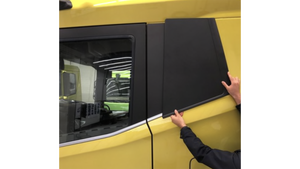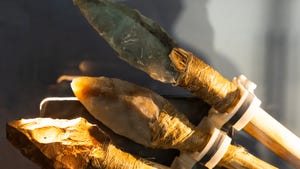It's not a new story by any stretch. In fact, I'd need both hands and both feet to count the number of times I've written about the theft of intellectual property from many different types of OEMs with connections to the plastics industry. It's been a major force in driving some companies back to the U.S. to do their manufacturing.
September 24, 2014
John Blundy, VP of Business Development at Beaumont Technologies, wrote recently on the American Moldmakers & Molders Network LinkedIn page to warn "clients, colleagues, associates and friends" about the theft of Beaumont's IP and patents by Chinese companies identified as either IDOPO or Onlytech Moldflow (wonder if Moldflow has heard about this) that represents themselves as "providers of Moldflow Simulation services and Scientific Injection Molding."
These companies are violating Beaumont Technologies Inc.'s trademark and copyright by "masquerading as a company representing MeltFlipper." Blundy issued the warning to "prevent further enabling of this unethical action by IDOPO and the potential complications resulting from molds or product entering the U.S. that include, or have been produced with, pirated technologies."
I'm sure the industry appreciates the warning, but after all the publicity about counterfeit/fake products and parts, IP theft, and of course the old trick of building duplicate molds - one for you and one for themselves. That's particularly true for actual products that can be immediately sold and exported.
One of the first stories I wrote concerning this problem was a bicycle seat that was invented and designed for women by a U.S. woman. It was at a trade show where she was exhibiting her new product that a potential customer came up to her and said, "I just saw these same seats just down the aisle." Sure enough, the Chinese company with whom she's contracted to make her bicycle seats was selling the exact same seat a few booths away. The sad thing was this supplier to the U.S. woman wasn't even ashamed of the fact that they'd stolen her IP and had become a competitor. They thought it was perfectly okay!
Farouk Systems Inc., manufacturer of the well-known Chi brand of hair irons and other hair care products, began finding counterfeit products everywhere several years ago [www.plasticstoday.com/articles/farouk-systems-inc-brings-manufacturing-us]. Unhappy customers, who purchased the fake hair irons only to have the irons break, were demanding refunds - which of course Chi paid. It was costing Chi tens of thousands of dollars in lawyer fees and customer returns, and as soon as they would shut down one counterfeiter, another would pop up. The company finally moved all of its manufacturing from China to Texas where the company has its headquarters, and found new molders in Texas.
While we hear a lot about reshoring manufacturing, there are still plenty of molds being built offshore. That's according to Bob Elwell, President of ProCAD Technologies, who has had a long career in mold and molded-part design for some major global OEMs. Elwell commented on Blundy's warning on LinkedIn, noting that he has spent a lot of time in China during his career, and has seen the numerous ways the Chinese have to "cheat."
"I've witnessed the culture first-hand, and have seen the strategies they use to copy products and designs, and build duplicate molds," Elwell told PlasticsToday in a telephone interview. "They substitute materials to a lower grade or lower quality resin, reduce the volume of a part while still holding dimensions that are within tolerance, and thus weaken the product so that it fails strength tests, all just to save money on the material costs." [www.plasticstoday.com/blogs/counterfeit-plastic-material-heart-another-vehicle-recall]
Elwell, ([email protected]), noted that most mold shops in China don't have to be 40% or 50% cheaper than U.S. shops today to get the job. They know that many purchasing agents for large companies are happy to save a few hundred dollars by sending the mold job to China. "These shops in China are making an absolute killing by charging far more than their costs to build the mold but keeping the price just under what a U.S. shop will charge. They're laughing all the way to the bank. I've even heard them brag about how much money they make off of molds from U.S. OEMs."
Stealing websites is also part of the game - it's pretty easy to cut-and-paste and photo-shop the pictures that have any tell-tale wording or company names on them [www.plasticstoday.com/blogs/your-website-still-yours-or-it-now-domain-chinese-company]. Companies that have molds built in China or who manufacture their products in China are vulnerable to IP theft. Even after all these years of writing about this problem, I continue to get calls from companies and individuals who are always surprised by the unethical practices that continue to take place in China.
I hope Beaumont can get their problems squared away, but it won't be easy - or cheap - to stop this practice of IP theft. Just ask the many companies that have fought - and continue to fight - the Chinese. And for those companies who haven't yet had a bad experience with China, you might want to learn from those who have and save yourself the trouble and expense.
About the Author(s)
You May Also Like




